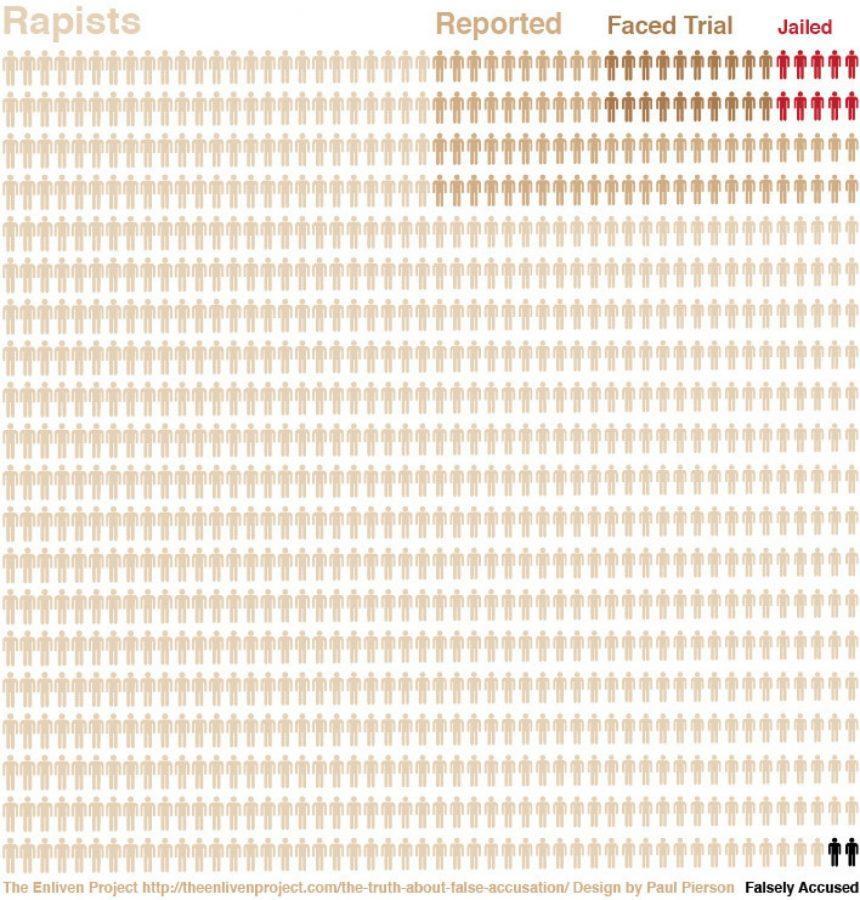More Than The Flu
The amount of rapes that occur, how many are reported, how many are convicted, and how many were false reports.
March 6, 2017
It’s winter, and besides being freezing cold, everyone is on their way to get their flu shot from the Baptist Health Clinic. We all remember the Swine Flu epidemic, spanning over nine months from April 2009 to August 2010. Panic set in, and everyone either feared it, or thought they had it (when really it was the common cold). In 2014, it was Ebola- we thought the government was using it as a population control tactic. Right now, it’s the Zika virus. But there’s one outbreak, one epidemic, that’s been around since the beginning of time. It’s victims are far greater in number than those of diseases above, yet it’s often is ignored, dismissed as a taboo subject. It goes by many names, but the most common ones are rape, incest, and sexual assault.
Many people would go so far as to say it’s the biggest epidemic the United States faces today, and they aren’t wrong. You’ve probably heard the statistics. One in five girls, and one in twenty boys, will be assaulted before their 18th birthday. Every two minutes, another victim. Ninety percent of victims will not report their rape to law enforcement, and of the ten percent that do, only one in fifteen will get justice. Victims are nearly four times more likely to attempt suicide, and 13% succeed.
But these are just numbers, and even when we acknowledge those, we tend ignore the faces they’re attached to. McCracken County High has around 2,200 students. If one in five girls and one in twenty boys will be assaulted by 18, then that averages to one in eight altogether. So that means that at minimum, we have two-hundred seventy-five students who are victims. And if only 10% report, two-hundred forty-eight have gone without proper support, therapy, and justice.
One of those is Jamie, whose real name is not disclosed in this paper due to her personal safety and interest in her well being. Jamie, like many, knew her assailant. “I was around the age of nine or ten. He was my mom’s boyfriend at the time. I’ll never forget when I told her. She was sitting on the porch smoking, and took a long drag out of her cigarette. She smiled, like I was joking, and said ‘Nah.’”
This is far too common in victims whose assailants are family friends, and the main reason why only 10 percent of victims report their assault to officials. Years later, Jamie, for fear of her younger sister, contacted her school. “They talked to him, and actually got a confession.”
Despite this, the fate of her assailant is still unknown to her. “I don’t even know if he was punished. They talked to me once, checked up once, and that was it.”
Mrs. Lisa Skipworth personally spoke to one of those children like Jamie (although they no longer attend this school). “I had a girl come to me once, it [her perpetrator] was a family member… she would not tell me who it was, but she wanted someone to know somebody had done this terrible thing to her, but not who it was. She was afraid they’d get in trouble.”
Unfortunately, as mentioned above, this is not uncommon, especially in cases of incest. According to the MCASA (Maryland Coalition Against Sexual Assault), one of the main reasons victims do not report is they do not want their offender to get in trouble due to having an interpersonal relationship with them. Another main reason is the stigma attached to being a survivor.
“I don’t like the way that it’s viewed,” says MCHS senior Kallie Olmeda. “If someone is sexually assaulted, they’re viewed as a target, as a disease. People think that they should step away slowly, don’t talk too loud,” she continues. While some of these fears are founded, as many survivors deal with Post-Traumatic Stress Disorder, survivors say they can sometimes aggravated by it.
“I don’t want to be pulled, and people be like, ‘oh, I’m so sorry, you poor thing’,” Jamie says. “It happened in the past. It is awkward talking about it to people who aren’t my friends, but it still doesn’t bother me so badly anymore. People act like it should.”
“I definitely am angry, though,” she added. “I feel like if I was to see him, violence would occur.”
And although we may find consent a trick subject, it really isn’t. As Olmeda said… “If it’s not a yes, it’s a no.”












